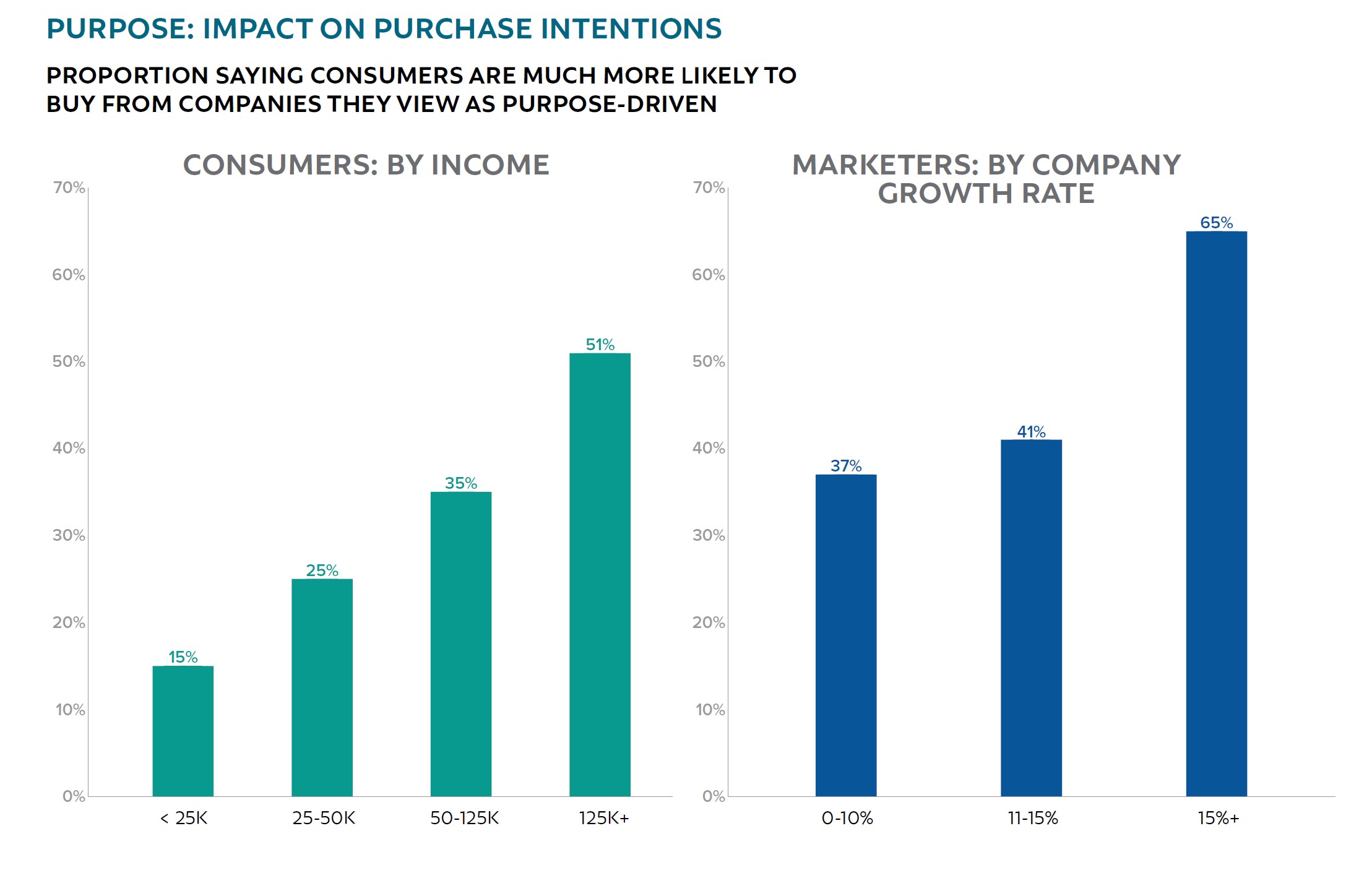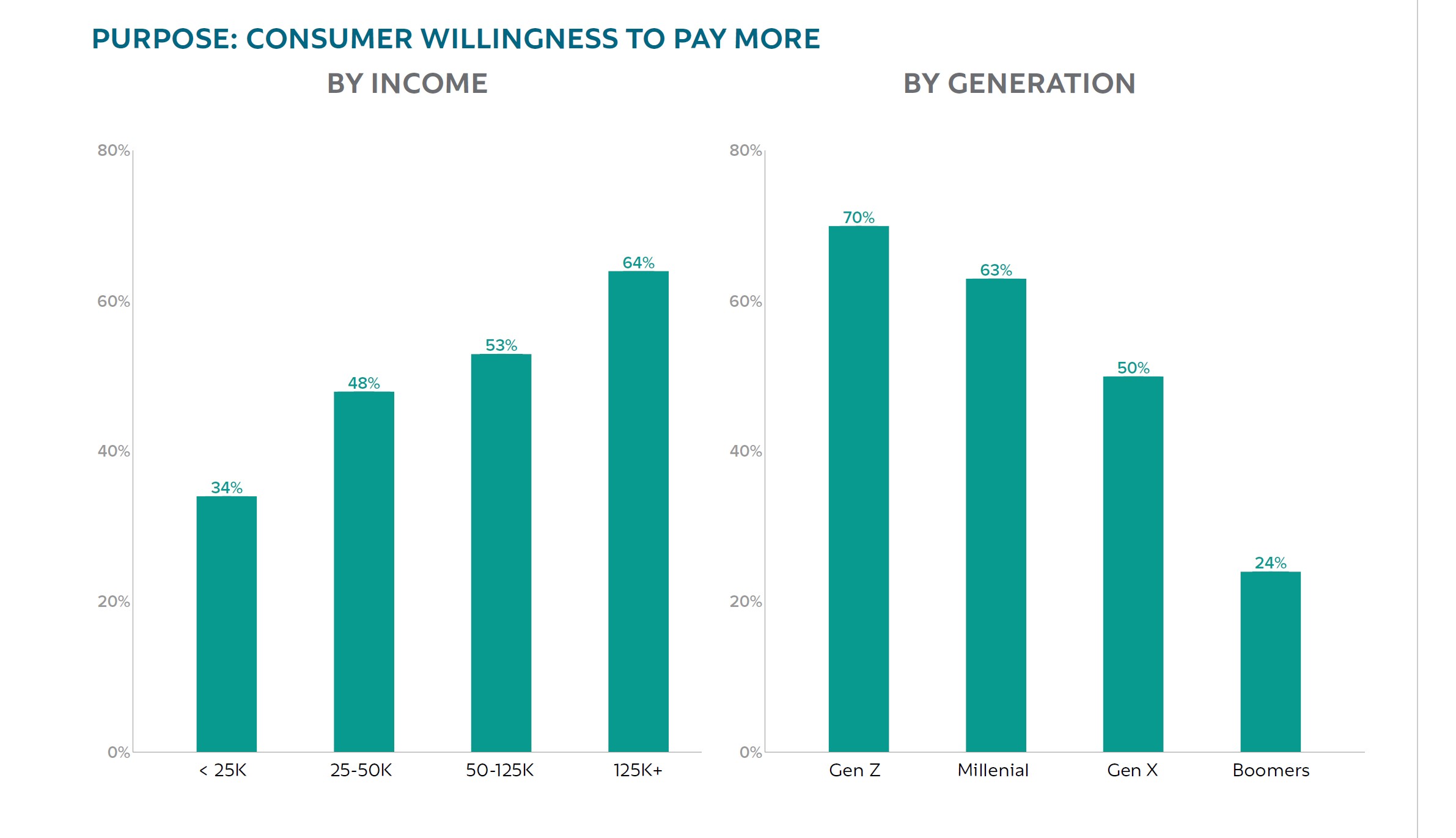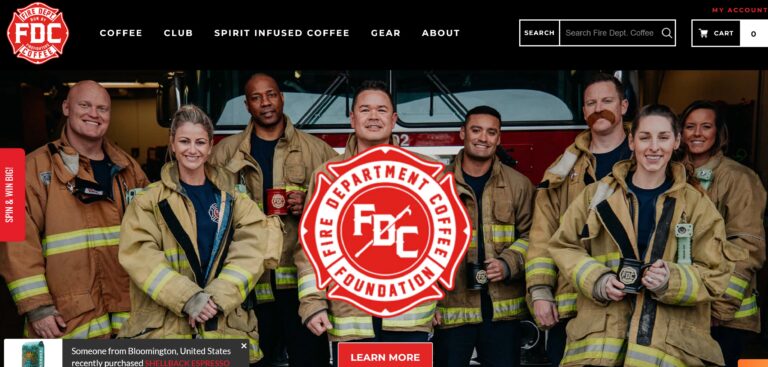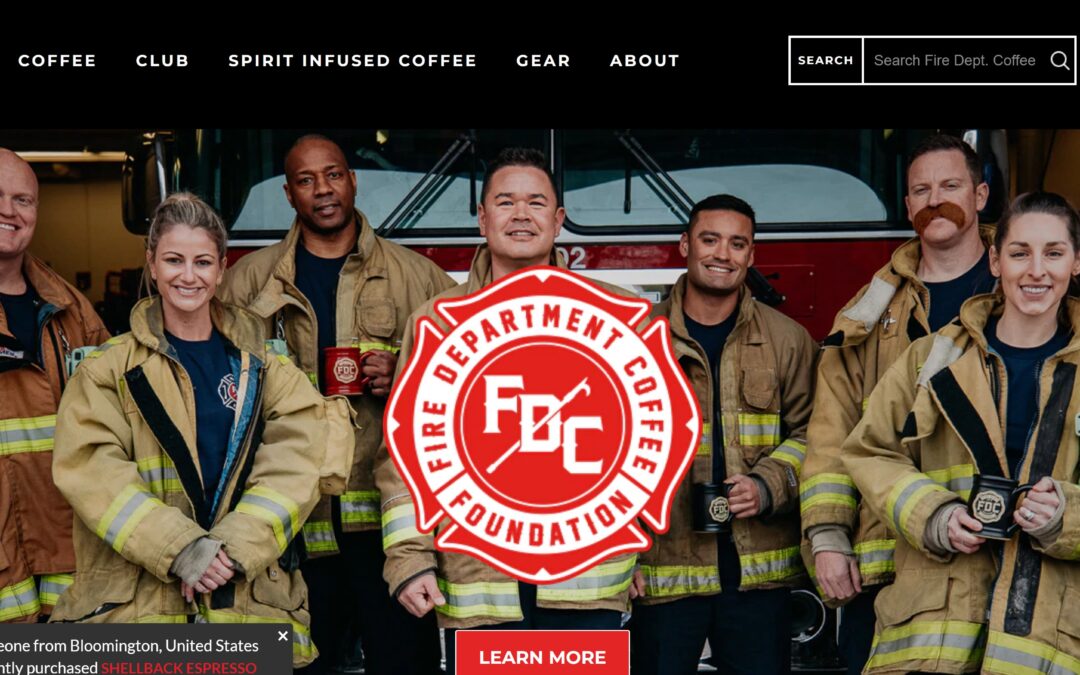I recently attended DigiMarCon East 2022, where I was invited to speak about Consumer-to-Consumer commerce and the implications for digital marketers. The conference was dedicated to digital marketing and naturally, some of the content and exhibitors pertained to themes like growth strategies, SEO, new tools and platforms like NFT, blockchain and the Metaverse, social media, cookies, etc.
However, one surprising key theme I noted at the conference was the “Purpose” conversation. Indeed, as marketers and strategists, we know how much purpose-led organizations resonate with consumers. Companies have invested in cause-led marketing, in DEI, and in becoming a B-Corp (the latest example being Nespresso) among many other strategies.
IBM recently published the results of a global survey of over 19,000 respondents, conducted across 28 countries in September 2021. The report reiterates the importance of purpose for companies. According to the report:
Purpose-driven consumers, who choose products and brands based on how well they align to their values, now represent the largest segment (44%) of consumers.
Craig Charney, PhD, President and CEO of Charney Research, presented a fresh consumer insights research the company conducted in the USA in Aug 2021. Not surprisingly, the research found Gen Z consumers to be more focused on racial justice and environmental issues as corporate priorities compared to their predecessors. It also concluded that higher-income shoppers will prefer to buy from purpose-driven companies and to pay more for their products/services.


Then, Dale Bertrand, Founder and President of Fire & Spark, gave a great talk on the effect of purpose on SEO. According to Fire & Spark, changes in how Google operates deem technical SEO less effective, and you should focus on becoming Google’s preferred website in your product/service category through authority building. In other words, this is the new age of content marketing: the content isn’t just important in the way it resonates with consumers – but also in the way it resonates with Google Search. According to the company:
To be effective, your authority building efforts must generate backlinks, content partnerships, and other trust signals that Google is monitoring.
Many marketers don’t necessarily realize that any brand can leverage the power of purpose to boost organic visibility and sales, but company case studies show that this is indeed the case. Note that “these brands are built around a purpose that is deeply held by their founders. The purpose may be a social mission or the founder’s compelling backstory or the craftsmanship behind their products.” Examples include Fire Dept Coffee, a coffee with a story and a mission.

https://www.firedeptcoffee.com/
Dale recommends investing in understanding your customers’ motivations, pain points and worldviews. Most of us (or at least, my clients) do when developing a marketing strategy, products/service innovation, or GTM strategy, so it was interesting to hear this advice given in the context of Search Engine Optimization.
It seems that the 2010s were the rise of consumers as a focal point. As a result, the 2020s, bringing along an awakening of a social-media fed generation, will belong to companies who can help consumers – and Google – see how spending money on them has a greater benefit than merely the companies’ bottom line.


Excellent, quite helpful, and well-written piece. Your ability to convey the subject in an intelligible manner amazed me. This is incredibly helpful to me. Thank you so much for doing this.
Digital marketers play a crucial role in today’s business landscape, as they are responsible for developing and executing marketing strategies that leverage digital channels such as social media, search engines, email, and websites. They must stay up-to-date with the latest technologies and trends, as well as be able to analyze and interpret data to make informed decisions. Digital marketers have the ability to reach a large and diverse audience through targeted and personalized messaging, which can drive brand awareness, customer engagement, and revenue growth. Overall, digital marketers are essential in helping businesses thrive in the digital age.